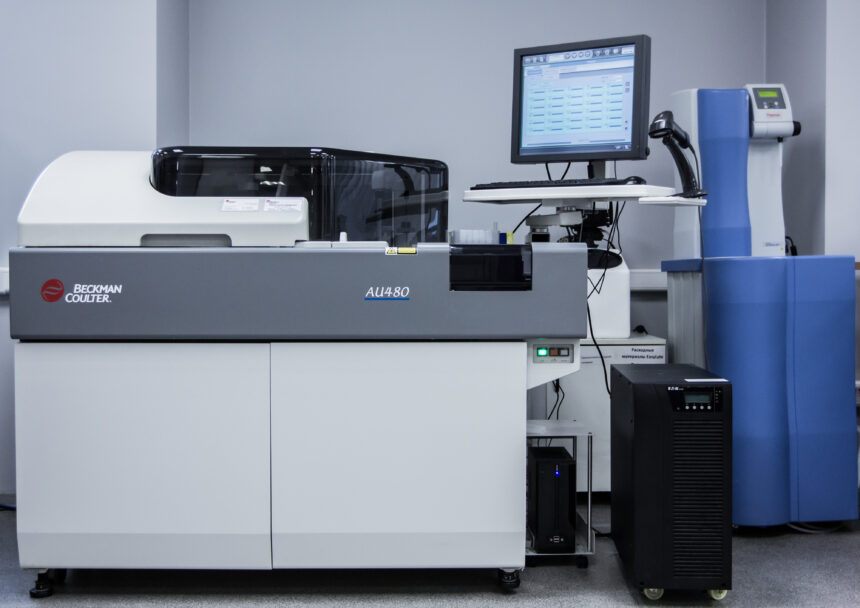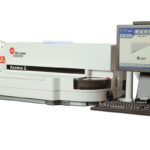The Beckman AU480 is making waves in the world of clinical laboratories, and for good reason. This advanced analyzer has been designed to enhance productivity while delivering precise results. With its cutting-edge technology, it promises to streamline your lab processes and improve efficiency. But how does it stand against other heavyweights in the market? In this blog post, we will dive deep into the features that make the Beckman AU480 a standout choice, explore its competitors, and see how they stack up side by side. Whether you’re considering an upgrade or just curious about what’s out there, this comparison will provide valuable insights for informed decision-making. Let’s get started!
Features and Benefits of the Beckman AU480
The Beckman AU480 stands out in the laboratory equipment landscape, offering impressive features that enhance workflow and efficiency. Its robust design allows for high throughput, making it ideal for busy environments where time is of the essence.
One of its key benefits is versatility. The AU480 can perform a wide range of tests, accommodating various diagnostic needs without compromising accuracy. This adaptability streamlines processes and reduces the need for multiple devices.
Additionally, the intuitive interface simplifies operation and minimizes training time. Users appreciate how easy it is to navigate through different functions.
Another highlight is its advanced optical technology which ensures precise measurements. Laboratories benefit from reliable results that boost confidence in diagnostics.
All these features culminate in improved productivity while maintaining high-quality standards in test outcomes. The Beckman AU480 truly embodies innovation tailored for modern laboratories.
Competitors in the Market
The laboratory diagnostics market is bustling with competitors that challenge the Beckman AU480’s position. Among these are well-known brands like Roche, Siemens, and Abbott. Each of these companies offers a range of analyzers designed to meet diverse clinical needs.
Roche’s cobas series emphasizes versatility and rapid results, catering to high-throughput environments. Meanwhile, Siemens’ ADVIA line focuses on advanced technology for enhanced accuracy and efficiency.
Abbott stands out with its newer systems that integrate seamlessly into existing workflows while providing reliable performance. Their focus on user-friendly designs makes them appealing to many laboratories.
In this crowded marketplace, each competitor brings unique strengths that attract various customer segments. Understanding these options helps labs make informed decisions tailored to their specific requirements.
Comparison of Beckman AU480 with Competitors
When examining the Beckman AU480, it’s essential to consider its standing against other analyzers like the Roche Cobas 6000 and Abbott Architect C16000. Each of these models has unique features that cater to different laboratory needs.
The AU480 is renowned for its efficiency and reliability in high-throughput environments. It boasts a remarkable throughput rate, making it ideal for busy labs. In contrast, the Roche Cobas 6000 offers extensive test menu flexibility but may not match the AU480’s speed.
Abbott’s Architect C16000 emphasizes automation capabilities, providing seamless integration with lab workflows. However, some users find it less user-friendly compared to the intuitive interface of the Beckman AU480.
Evaluating turnaround times reveals notable differences as well; labs often report quicker results with the AU480 due to its advanced technology. This can significantly impact urgent patient care scenarios where timing matters most.
Customer Reviews and Testimonials
The Beckman AU480 has garnered a wide range of feedback from users across laboratories. Many technicians praise its reliability and efficiency in processing samples. They appreciate the seamless integration into existing workflows.
Users frequently highlight the intuitive interface, which simplifies operation even for those new to clinical analyzers. The clarity of results is another aspect that stands out, leading to increased confidence in diagnostics.
Some reviews mention exceptional customer support from Beckman Coulter, noting how quickly issues are addressed and resolved. This level of service can make all the difference when time-sensitive tests are involved.
However, there are also critiques regarding initial setup complexity. While most find it manageable, some require extra guidance to get everything running smoothly. Balancing these experiences provides a comprehensive view of how the AU480 fits into various laboratory environments.
Cost Analysis
When evaluating the Beckman AU480, cost is a significant factor to consider. The initial investment may seem steep, but it’s essential to weigh this against its long-term benefits.
Maintenance costs are relatively low compared to competitors. This device boasts reliability and durability, translating into fewer repairs over time.
Additionally, its efficiency can lead to reduced operational expenses. Laboratories often see quicker turnaround times with the AU480, allowing them to handle higher volumes without hiring additional staff.
Consumable costs also play a role in overall expenditure. While some alternatives offer lower upfront prices, they might require more frequent reagent changes or parts replacement.
In essence, while the purchase price of the Beckman AU480 may be higher initially, many facilities find that it offers substantial savings in the long run through improved performance and reduced ongoing costs.
Conclusion
The Beckman AU480 stands out in the crowded market of clinical analyzers. Its combination of innovative features and reliable performance makes it a compelling choice for laboratories seeking efficiency and accuracy.
As discussed, competitors such as the Roche Cobas 6000 and Siemens Advia 1800 offer their own unique benefits, yet may not match the flexibility or user-friendly interface found in the Beckman AU480. The comprehensive comparison highlights specific advantages that could sway your decision, whether it’s throughput capacity or ease of maintenance.
Customer feedback paints a favorable picture too. Many users appreciate its intuitive design and consistent results, reinforcing why it remains a popular option among laboratory professionals. Cost analysis reveals that while there may be more budget-friendly options available, investing in a Beckman AU480 can translate to significant long-term savings through enhanced productivity and reduced error rates.
Choosing the right analyzer is essential for any lab operation looking to optimize workflows while maintaining high standards of quality control. The Beckman AU480 deserves serious consideration on this journey toward excellence in laboratory diagnostics.






